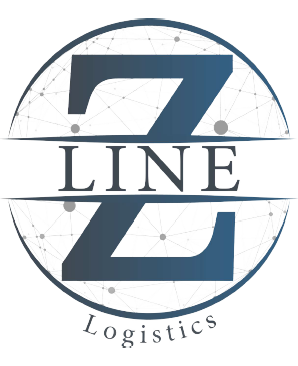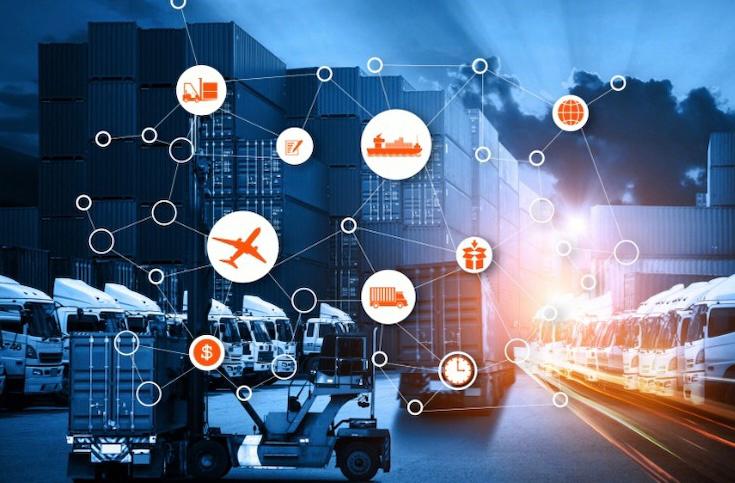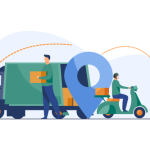Table of Contents
In the current fast moving world, AI and transportation are intersecting resulting in the commuting and movement being reinventing.
AI is taking over the autonomous vehicles to predictive maintenance and also smart infrastructure, it is changing the transportation sector with its innovation and efficiency.
Let’s go together in the journey of innovation and discover the AI and transportation and how it changes the future of mobility.
AI and Transportation Uses
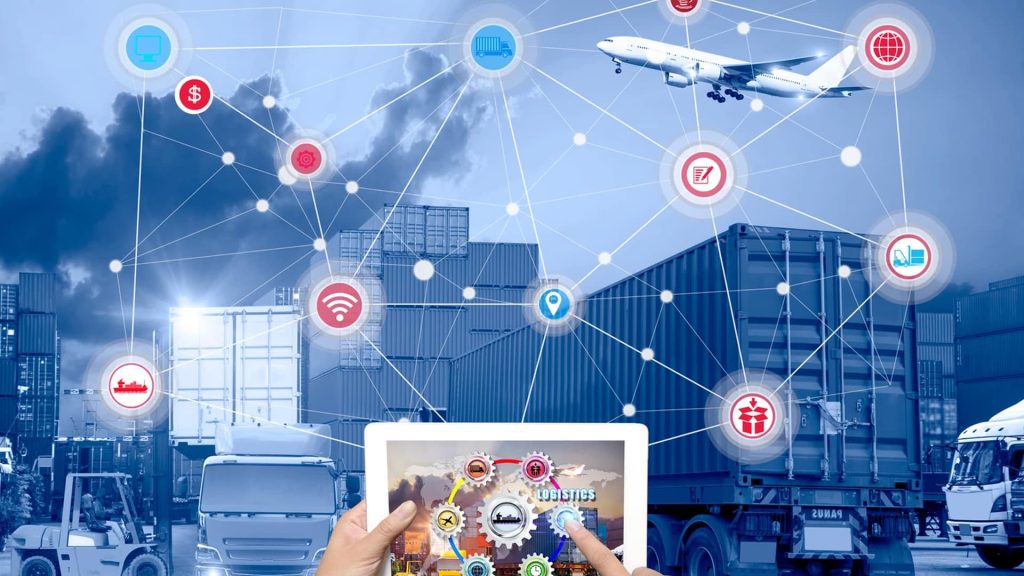
AI in logistics and transportation covers the whole spectrum of the applications designed to enhance the effectiveness, safety and sustainability in all modes of transportation.
Here are some common uses of AI and transportation: The machinery components were replaced with the ones of better replica.
Predictive Maintenance
AI-based systems monitor the state of the vehicles and also the infrastructure online to predict when maintenance is necessary. The proactive approach, therefore, will eliminate any breakdowns and lower the downtime which in turn saves us time and money.
Supply Chain Optimization
Artificial introduction drives the optimization of the supply chain logistics on the direction planning, on-hand stock management, as well as demand forecasting.
AI algorithms have the capability to analyze large volumes of data in order to detect the inefficiencies and advise ways of receiving improved workflow.
Smart Infrastructure
AI equipped infrastructure can react to varying traffic dynamics to enhance safety and efficiency. These systems employ sensors and also AI algorithms for the detection and also response to traffic congestion, crashes, and other events in the real-time.
Customer Service and Experience
The AI-based chatbots and virtual assistants offer instant information and help to the travelers.
AI-powered systems are equipped to answer queries, provide travel status updates, and deliver tailored suggestions to further improve customer interactions.
Predictive Analytics for Maintenance and Operations
AI algorithms use data from the past to forecast future behaviors, for instance traffic surge time, overhaul requirements and danger hazards.
Predictive analytics assists transportation agencies and companies to make informed decisions and allocate resources more efficiently.
Fleet Management
AI systems are employed in the control of fleets of vehicles, for example, taxis, buses and delivery trucks, for purposes of maximizing their performance.
Such systems are able to track vehicle locations, analyze driver conduct and route plans to increase efficiency and lower running costs.
Safety and Security
Artificial intelligence methods such as computer vision and natural language processing are employed in airports, public transportation systems and transport hubs for supervising and threat detection.
Artificial Intelligence-supported technologies can detect suspicious activity, detect security threats, and notify the authorities in real time to protect passengers and infrastructure.
AI and Transportation Benefits
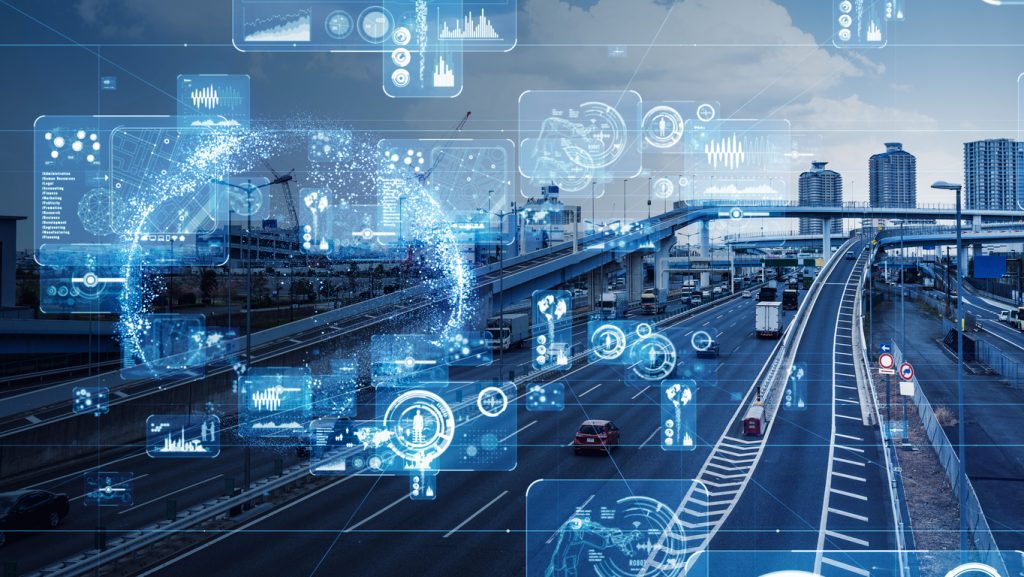
Generative ai in transportation and logistics brings a host of advantages across different facets. Here are some key advantages:
Improved Safety
AI enabled systems can increase the safety of the vehicles thanks to features like autonomous emergency braking system, lane-keeping assist system as well as collision avoidance system. Besides this, AI can forecast and avert the emergence of hazards thereby enhancing road safety.
Increased Efficiency
AI improves the transportation systems resulting in smoother traffic flows, less congestion and shorter travel times. This efficiency translates into cost savings, less fuel consumption and the lowering of the emissions.
Enhanced Customer Experience
Services like real-time traffic notifications, personalized route suggestions, and automated customer service assisted by AI enhance the journey of passengers. It results in higher satisfaction and loyalty of customers.
Cost Savings
AI-optimized route, schedule and fleet management bring lots of savings for transportation companies.
What predictive maintenance, in particular, does is identify a problem early before breakdowns and repairs become really expensive.
Environmental Benefits
AI optimizes routes and reduces congestion to minimize fuel consumption and emissions which promote a cleaner and more sustainable environment.
Furthermore, in the case of electric and self-driving vehicles, AI based technology also plays a part in cutting down the carbon footprint of transportation.
Data-Driven Decision Making
Machine learning algorithms process huge volumes of data coming from different sources allowing transport agencies and companies to take well-reasoned decisions.
Predictive analytics enables anticipation of demand, route planning and resource allocation, all of which are geared towards better operational performance.
Accessibility and Inclusivity
AI technologies can enhance the accessibility for individuals with disabilities with features such as voice-activated interfaces, real-time transit information and autonomous mobility solutions.
This achieves equality and guarantees that transport services are available to all.
Infrastructure Optimization
Artificial Intelligence (AI) can be a useful tool for optimizing the design and maintenance of the transportation infrastructure, the roads, bridges and public transport system.
Smart infrastructure with sensors integrated and autonomous algorithms can monitor conditions in real-time, detect problems, and act preemptively to achieve safety and efficiency.
Innovation and Economic Growth
AI and transportation foster innovation and boosts economic development by creating new markets for companies and sectors. It promotes development of new technologies, products and services thus leading to job creation and economic growth.
In the end, AI in transportation gives multiple advantages such as safety, efficiency, quality customers’ service, and sustainability of the environment.
The potential of AI can be leveraged by the transportation industry to engage with the key issues that are holding the industry back and improve the pace of growth and innovation.
Read More: AI in Customs Clearance: Exploring How It Is Used in Dubai.
AI and Transportation Future
The future of AI in transportation is pregnant with much more disruption and evolution across other facets of transportation. Here are some key directions in which AI is likely to shape the future of transportation.
Integration of AI with Transportation Infrastructure
AI will become more deeply embedded in the transport infrastructure to build intelligent cities and intelligent transport systems.
With this integration, the traffic, parking, and public transport networks will be monitored in real-time for optimization and management.
Personalized Mobility Services
AI will be used to create personalized mobility services which will be customized according to personal preferences and needs.
It may also refer to on-demand transport, subscription-based mobility packages, and tailored travel experiences that follow a user’s preferences and behaviors.
Enhanced Connectivity and Communication
Smart communication systems powered by AI will enhance connectivity between the vehicles, infrastructure and other devices leading to seamless communication and coordination.
The network will enable V2V and V2I communication as it also caters to the future technologies like V2X communication.
Predictive Maintenance and Asset Management
AI will still remain a key player in predictive maintenance and asset management allowing transportation agencies and companies to improve the maintenance of vehicles, infrastructure as well as equipment.
Predictive analytics and condition monitoring for proactive maintenance will lead to minimum downtime and an increased asset lifespan.
Multi-Modal Transportation Solutions
AI will help merge different transport modes including public transit, ride-sharing, biking and walking into cohesive multi-modal transport systems.
AI-enabled platforms and apps will provide real-time updates and alternative route recommendations, thus simplifying user’s navigation and switching across various means of transport.
Safety and Security Enhancements
AI will gradually increase the level of safety and security in transport through the use of advanced driver assistance systems (ADAS) ,surveillance systems and hazard identification algorithms. AI-driven technologies will keep accidents from happening, identify and react to security risks, and protect the safety of both passengers and infrastructure.
Ethical and Regulatory Considerations
With emerging AI and transportation, ethics and regulatory concerns will gain more importance, involving issues of safety, privacy, liability, and equity.
Policymakers and stakeholders will need to grapple with those barriers in order for the deployment of AI in transportation to be responsible and ethical.
In all, AI and transportation will be vital for development of more efficient, sustainable and accessible transportation systems which will ensure safety and increase the quality of life of people across the globe.
Nevertheless, the fulfillment of such a vision will demand constant advancement, partnership and conscious appraisal of the implications of AI-powered transportation technologies.
Know more: IMEI Scanning Services in UAE Explained: How to Protect Your Mobile?
FAQs About AI and Transportation
How AI is used in transportation?
The use of AI and transportation includes traffic management, predictive maintenance, customer service and safety enhancement among others.
AI algorithms use large amounts of data to identify the best routes, minimize traffic and, in general, to maximize the performance of the transportation network infrastructure.
Also, the use of AI fosters the creation of self-driving cars, smart infrastructure, and tailor-made mobility services, redesigning how people and goods are transported.
How is AI used in vehicles?
AI is employed in vehicles mainly for autonomous driving and advanced driver assistance systems (ADAS).
AI algorithms, e.g.Machine learning and computer vision allow cars to understand their environment, make choices immediately, and navigate safely without the need for human control.
The technologies fuel features such as adaptive cruise control, lane-keeping assistance, and automatic emergency braking that boost not only safety, but also convenience of drivers.
What are the disadvantages of AI in transport?
AI and transportation offer many advantages but one should keep in mind some drawbacks as well.
A big worry is that of jobs being displaced, particularly so among drivers and other transportation workers as autonomous technology becomes more widespread.
Furthermore, ethical and regulatory problems also emerge with entanglements like data privacy, liability, and fair distribution of benefits.
Moreover, reliance on AI systems entails cyber-attacks and technical failures which may lead to safety and security risks in transportation systems.
How AI is helping in logistics?
AI is assisting in logistics by optimizing supply chain operations, improving efficiency and reducing costs.
AI algorithms process data from different sources to predict demand, adjust inventory levels and optimize transportation and delivery routes.
Predictive maintenance powered by AI not only prevents equipment breakdown but also reduces equipment downtimes.
AI-based analytics offer insights for strategic decision-making which makes it easier to adjust to shifting market environments and consumer desires. On the whole, AI breeds logistics operations agility, responsiveness, and competitiveness.
Briefly, we covered what is AI and transportation, the advantages and disadvantages of AI and transportation, and the application of AI and transportation signifies a paradigm shift towards more secure, efficient, and eco-friendly mobility options.
Autonomous vehicles to predictive maintenance and customized services, artificial intelligence is transforming mobility.
The future holds even greater opportunities for AI development which will also make travel experiences better and innovative.
